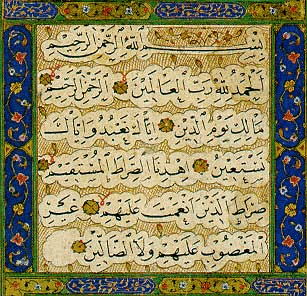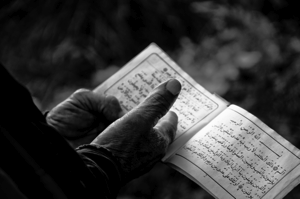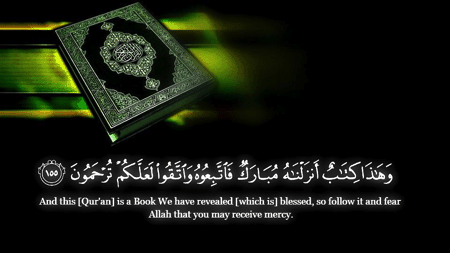Qur’an Reflections: Day One: Fatiha and Baqara [2.1-141]
The Book of Certainty: Qur’anic Themes & Reflections
In this series, Shaykh Faraz Rabbani and Ustadh Tabraze Azam, SeekersHub Global Instructors, share a day by day overview of key themes of each section (juz’) of the Qur’an, over the month of Ramadan. This is covered nightly at IMO of Toronto, where SeekersHub Toronto (www.seekers.flywheelstaging.com) is conducting its Ramadan 2013 programming.
Day One: Juz’ One: al-Fatiha & al-Baqara [2.1-141]
1. Surat al-Fatiha (The Opening)

The Fatiha summarizes the Qur’an’s message. It is a call to guidance, turning to Allah, and seeking eternal felicity.
[a] Turning to Allah
The Fatiha opens with three ways of turning to Allah, before the plea for guidance:
[i] praising Allah [Qur’an, 1.1]
[ii] recognition of Divine Beauty and Gentleness [Qur’an, 1.2]
[iii] recognition of Divine Majesty and Lordship. [Qur’an, 1.3-4]
[b] Asking Allah for the Greatest Human Need: Guidance
The greatest human need–for guidance (hidaya) is expressed in Surat al-Fatiha: “Guide us to the Straight Path.” [Qur’an, 1.5]
The Straight Path is the path to Allah–the path to closeness, love, and Allah’s eternal pleasure.
The Straight Path is the light embodied by the Messenger of Allah (peace and blessings be upon him and his folk).
2. Surat al-Baqara (The Cow) [2.1-141]

There are three key themes in this section:
[a] Mindfulness (taqwa) is the Key to Benefiting from the Qur’an
The Qur’an is a Book of Guidance. But who benefits from its guidance? The mindful (muttaqin):
“Alif Lam Mim. That is the Book, wherein is no doubt. It is guidance for those mindful.” [Qur’an, 2.1-5]
Mindfulness (taqwa) is an inward restraint that enables one to avoid that which displeases or distances from Allah–and to embrace all that pleases and draws close to Allah. It is a state of the heart, manifest in one’s attitude and actions–in one’s character and conduct.
[b] True Faith, and the Types of People
Right away, Allah Most High differentiates between different types of people:
[i] the mindful, sincere believers;
[ii] those who reject belief; and
[iii] the hypocrites.
The Qur’an’s call is to acquire the qualities and characteristics of true believers–and avoid the qualities and characteristics of those who turn away from Allah’s Call to Mercy and His Gift of Guidance.
“As for those who reject belief, alike it is to them whether you hast warned them or hast not warned them, they do not believe. God has set a seal on their hearts and on their hearing, and on their eyes is a covering, and there awaits them a mighty chastisement. And some there are who say, ‘We believe in God and the Last Day;’ but they are not true believers.” [Qur’an, 2.6-8]
The lesson? Be a true believer: open your heart to guidance. Listen; follow; be true to Allah and the Messenger (peace and blessings be upon him)–become of the mindful (muttaqin), of those beloved to Allah Most High.
[c] Taking Heed from Examples of Past Peoples
The stories of the Qur’an are:
[i] lessons and reminders of guidance–and that submission is an expression of gratitude (shukr) to God;
[ii] manifest examples of what it means to embrace or turn away from faith.
“Children of Israel, remember My blessing wherewith I blessed you, and that I have preferred you above all beings.” [Qur’an, 2.47]
And then moving to Prophet Ibrahim (peace be upon him), an exemplar: “When his Lord said to him, ‘Surrender,’ he said, ‘I have surrendered me to the Lord of all Being.’” [Qur’an, 2.131]
And Allah alone gives success.
Faraz Rabbani and Tabraze Azam
SeekersGuidance / SeekersHub Global NEEDS your HELP: Help take Sacred Knowledge to the Ends of the Earth with a Donation this Ramadan: http://seekers.nationbuilder.com/ — SeekersHub Global also accepts zakat donations, which are distributed to eligible seekers of knowledge.

